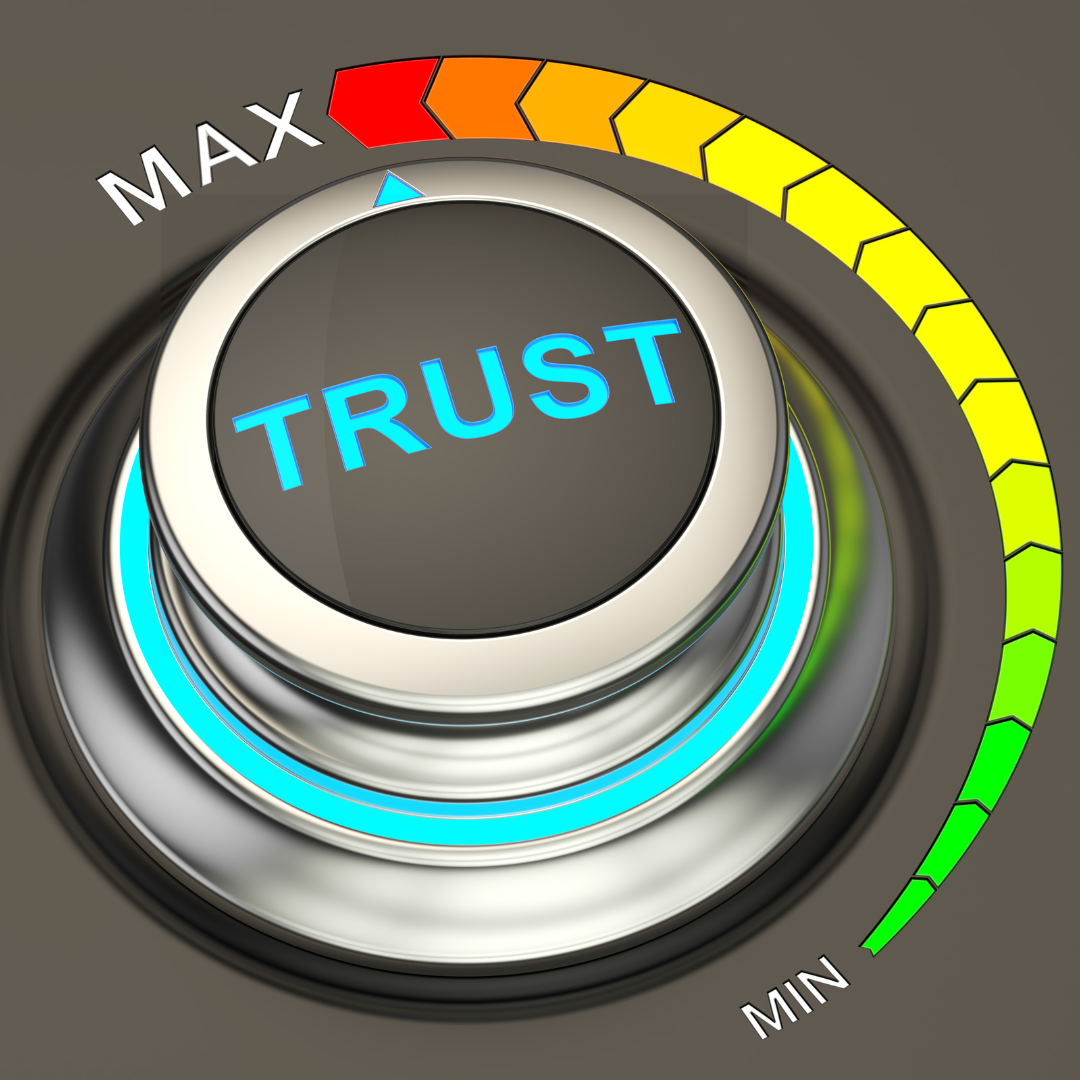Secure payment processing is more vital than ever, and for reasons most people don’t realize.
The main reason— security issues cost businesses their reputation. This lowers trust and causes them to lose customers, which are hard to replace, as any business owner knows. Studies have long shown that selling to existing customers is much easier and more cost-effective than gaining (chasing) new customers for new sales.
That is why we are giving you proven ways to keep your customers and your good reputation by avoiding fraud, unauthorized access, and data breaches. It begins with secure payment systems.
Trust Your Merchant Processor?
Two key facts about customer trust:
- 80% of consumers consider trust a deciding factor in their buying decisions (2021 survey)
- 83% of customers say they’d recommend a business they trust to others (FreshWorks survey)
See how crucial trust is? It not only helps businesses keep customers but also leads to customers recommending your business to more people!
To avoid that trust being broken, you need a merchant processor you can trust to protect your customers’ data.
There are various levels of security to look at
For example, there is basic security with Payment Card Industry Data Security Standard (PCI DSS), which any payment processor is legally obligated to provide. The ultimate level of security comes with providers that utilize System and Organization Controls 2 (SOC 2), which goes beyond payments. SOC 2 is a robust security and privacy audit standard established by the American Institute of Certified Public Accountants.
Let’s see how to protect customer data in payment transactions with SOC 2.
How SOC 2 Adds Higher Security For Businesses
The added benefits of a merchant processor that provides SOC 2 security:
- System damage defenses
- Data backups
- Disaster recovery
- Sensitive data only available to authorized users
As you can see, those protections go beyond basic levels of fraud detection and data privacy. SOC 2 should be a consideration when you want to maximize the trust factor with customers and when privacy factors outside of payment transactions are involved.
National Processing provides SOC 2 security for businesses – including enterprise-level companies.
Enhancing Security In Your Payment Processing System
Don’t forget the human element with payment processing, though.
Employee training is crucial to creating a secure environment for your business transactions, and here is why…
Human error accounts for over 80% of cybersecurity incidents, according to HBR. Verizon did a study with similar findings, revealing 82% of data breaches involved a human element (i.e., making mistakes that enable cybercriminals to access a business’s transaction data).
Luckily, there are solid tactics for enhancing security in your business and can include:
- Creating a secure culture
- Constant training for threat awareness
- Encouraging reports of suspicious activity
Some businesses even implement a ‘zero trust’ strategy. This model limits access rights to only what is necessary to perform one’s job.
Risk assessment testing is a good practice to ensure employees don’t open your system and customer data up to criminals. For example, one company recently found the majority of their employees clicked on a “malicious link” inside an email about “vacation day changes.” This was just a test, so no harm was done, but it did remind team members to be more vigilant.
Now, we will look at new cyber threat trends happening more frequently.
The Latest Security Issues For Businesses
Running a business takes up a lot of your time, so you may not have time to stay updated on every new security threat, right?
This can leave you vulnerable by simply being unaware of the newest threats.
Ransomware as a Service (RaaS): Incredibly, cybercriminals are now offering ransomware on a subscription basis. This has the potential to spread cyber-attacks further by allowing criminals without hacking expertise to utilize ransomware against businesses.
Multi-Vector DDoS Attacks: In simple terms, this combines several attack strategies to overwhelm business systems. Sadly, these attacks are on the rise (up by 80%, according to Upguard.com).
Supply Chain Attacks: These are indirect security issues where bad actors use your trusted relationships to defraud your company or steal customer and client data. Two examples: 1) Sending a fraudulent invoice from a vendor that the bad actor hacked. 2) Sending money requests from a family member’s hacked email account to your business email account.
Before we get to three frequently asked questions about security with merchant processors, let’s touch on a few security solutions.
Secure Payment Processing Solutions For Businesses
#1 EMV chips offer more advanced security than older magnetic stripes on credit / debit cards. Visa reported a 76% drop in card-present counterfeit payment fraud due to EMV chips (2015 to 2018).
#2 Transport Layer Security (TLS) provides superior payment protection versus Secure Sockets Layer (SSL). Both are encryption protocols to protect data moving between web servers and browsers.
#3 Tokenization replaces sensitive payment data with unique symbols. This payment processing solution removes a bit of compliance burden by keeping sensitive data out of a business’s systems in the first place!
No merchant processor takes payment security more seriously or is more vigilant than National Processing.
Time for the Q&A on payment security (thanks for reading).
Merchant Processor Security FAQ
What is payment security?
Any systems, processes, and measures for protecting financial transactions from unauthorized access, data breaches, and fraud. Payment security matters greatly since over 70% of businesses report being targeted by some form of payment fraud (2021 statistic).
What are three measures for enhanced payment security with card-not-present transactions?
Address Verification Services (AVS), 3D Secure technology, and Card Verification Value CVV: AVS verifies cardholder’s address (merchant payment gateway settings may still determine if payment will complete). 3D Secure adds a layer of security to online transactions by requiring a password or biometric authentication. CVV is an extra step helping ensure the card user has the card in their possession as the CVV is printed on the card and nowhere else (merchants should not keep the CVV on file since this is a security risk).
How can a new business gain customer trust faster?
Get serious about collecting customer testimonials then sharing those positive experiences. 72% of consumers say positive testimonials and reviews increase their trust in a business. Take it a step further by using video testimonials because these are more convincing than written reviews, studies show. Customers may not have time to do a video testimonial, though. You will have to make the request more than once – a good time to remind them is during checkout!





